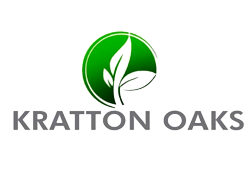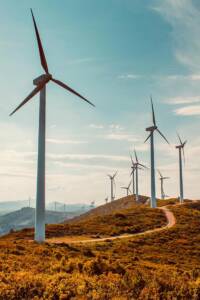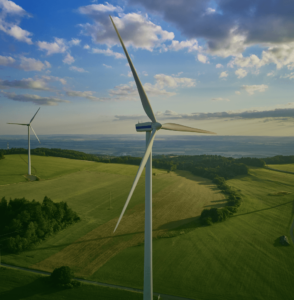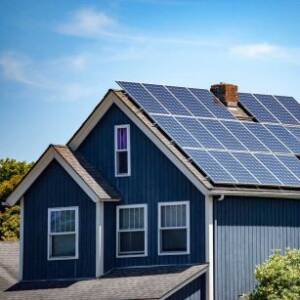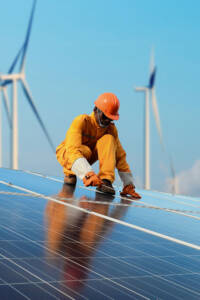Renewable energy goes beyond just generating clean power; it has the potential to empower communities, fostering economic development, social equity, and environmental justice. Today we explore how renewable energy projects are empowering communities worldwide. From job creation and local ownership to energy access and resilience, we will delve into the transformative impact of renewable energy on individuals, neighborhoods, and marginalized populations. By embracing renewable energy, communities can take control of their energy future, driving positive change and building a more sustainable and inclusive society.
Economic Development and Job Creation
Renewable energy projects have the capacity to spur economic growth and create job opportunities within local communities. From the construction and installation phases to ongoing operation and maintenance, these projects require a skilled workforce. Job roles range from engineers and technicians to project managers and administrators, offering diverse employment opportunities. Additionally, renewable energy projects can stimulate related industries such as manufacturing of solar panels or wind turbine components, further contributing to local economic development. Moreover, community-based renewable energy initiatives, where local residents have ownership stakes, provide a direct economic benefit by generating revenue and profits that circulate within the community.
Energy Access and Energy Equity
Renewable energy plays a vital role in expanding energy access, particularly in underserved communities. Off-grid renewable solutions, such as solar home systems and mini-grids, provide electricity to remote areas that are not connected to the traditional grid. This enables access to clean, reliable power for lighting, cooking, education, and healthcare. Additionally, renewable energy initiatives can address energy poverty by reducing energy costs and alleviating the burden on low-income households. Community solar projects, for example, allow residents to subscribe to a shared solar installation, providing them with affordable access to clean energy
Environmental Justice and Health Benefits
Renewable energy helps address environmental justice concerns by reducing the disproportionate impact of fossil fuel-based energy systems on marginalized communities. Communities living near polluting power plants often suffer from higher rates of respiratory diseases and environmental degradation. Transitioning to renewable energy sources mitigates air and water pollution, improving the health and well-being of affected communities. By embracing clean energy, these communities can enjoy cleaner air, reduced health risks, and a higher quality of life.
Resilience and Community Empowerment
Renewable energy enhances community resilience by decentralizing power generation and increasing energy independence. Localized renewable energy systems, coupled with energy storage, enable communities to maintain access to electricity during grid outages or natural disasters. This resilience empowers communities to respond effectively to emergencies, support critical services, and provide a sense of security. Moreover, community-led renewable energy projects promote engagement, participation, and decision-making power among residents. This sense of ownership fosters a stronger sense of community, empowerment, and civic pride.
Conclusion
Renewable energy has the potential to empower communities in numerous ways, from driving economic development and creating jobs to expanding energy access and promoting environmental justice. By embracing renewable energy initiatives, communities can take control of their energy future, reducing dependency on fossil fuels and realizing the multiple benefits of clean, sustainable power. Through collaboration, community engagement, and supportive policies, we can build a future where renewable energy not only powers our world but also empowers the diverse communities that make it thrive. Together, we can create a more equitable, resilient, and sustainable society for all.
